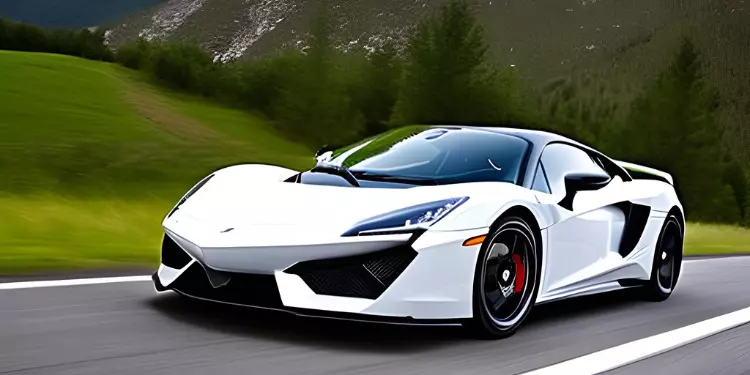Table of Contents
Car window tinting is not only a popular trend among car enthusiasts, but it also serves as a practical solution to enhance your overall driving experience. Whether you want to protect your car’s interior from harmful UV rays, reduce glare, increase privacy, or simply add a touch of style, finding the best car window tint is crucial. In this comprehensive guide, we will explore the different types of window tint options available, their unique benefits, and the essential factors to consider when choosing the right tint for your vehicle.

1 Types of Car Window Tint
- Dyed Window Tint: Dyed window tint is created by placing a layer of dye between the window glass and the adhesive layer. This type of tint offers excellent glare reduction and provides privacy by darkening the windows. However, compared to other options, its heat rejection capabilities are relatively lower. On the positive side, dyed window tint tends to be more affordable than other options.
- Provides privacy by darkening the windows.
- Offers good glare reduction, enhancing visibility.
- An affordable option for those on a budget.
- May fade over time due to exposure to sunlight.
- Metalized Window Tint: Metalized window tint consists of metallic particles layered onto the film. This type of tint offers superior heat rejection and durability. It effectively reflects heat and UV rays, making it an excellent choice for hot climates. However, the metallic layer in the tint may interfere with electronic devices such as GPS or cell phone signals.
- Provides excellent heat rejection, keeping the interior cool.
- Reflects a significant amount of heat and UV rays.
- Offers enhanced durability and longevity.
- May interfere with GPS and cell phone signals due to the metallic layer.
- Carbon Window Tint: Carbon window tint combines style and performance. It features carbon particles that block 40-50% of infrared radiation, effectively reducing the heat inside your car during hot days. Carbon window tint also provides excellent UV ray protection and reduces fading of your car’s interior.
- Blocks a significant amount of infrared radiation, keeping the interior cooler.
- Provides excellent UV ray protection, preventing damage to your skin and the car’s interior.
- Reduces fading of the car’s interior due to prolonged exposure to sunlight.
- Offers a sleek, matte finish for a stylish appearance.
- Ceramic Window Tint: Considered the premium option, ceramic window tint is created by layering ceramic particles on a non-conductive film. It provides exceptional heat rejection, blocks nearly 99% of UV rays, and does not interfere with electronic signals. Ceramic tint is highly durable, scratch-resistant, and offers a luxurious appearance.
- Provides exceptional heat rejection, ensuring a comfortable interior even in the scorching heat.
- Blocks almost 99% of harmful UV rays, protecting your skin and interior from damage.
- Does not interfere with electronic signals such as GPS or cell phones.
- Highly durable and scratch-resistant, maintaining a pristine appearance for longer.
2 Benefits of Car Window Tint
Investing in the best car window tint can provide several benefits for both you and your vehicle. Here are some advantages worth considering:
- UV Protection: Window tinting can block harmful UV rays, protecting you and your passengers from potential skin damage and reducing the risk of skin cancer. It acts as a sunscreen for your car, preventing the harmful effects of prolonged sun exposure.
- Heat Reduction: A high-quality window tint can significantly reduce the heat inside your car, making your drive more comfortable and reducing the need for excessive air conditioning. This, in turn, saves fuel consumption and extends the life of your air conditioning system.
- Glare Reduction: Tinted windows help minimize glare from direct sunlight or bright headlights, improving your visibility and reducing eyestrain. This is particularly beneficial during long drives or when driving in bright sunlight or at night.
- Privacy and Security: By adding a tint to your car windows, you enhance privacy and prevent prying eyes from seeing inside your vehicle. It can also deter potential thefts as valuable items are less visible. This added layer of security can give you peace of mind, especially when parking your car in public places.
- Interior Protection: Window tinting can protect your car’s interior from fading, cracking, and discoloration caused by prolonged exposure to sunlight. It helps preserve the beauty and value of your vehicle’s interior, ultimately prolonging its lifespan.
- Shatter Resistance: In the unfortunate event of an accident or break-in attempt, window tint holds shattered glass together, reducing the risk of injuries from flying glass shards. This added safety feature can protect you and your passengers during unexpected incidents.
3 Factors to Consider When Choosing Car Window Tint
When selecting the best car window tint, there are a few essential factors to keep in mind:
- Local Laws and Regulations: Familiarize yourself with your state’s tinting laws to ensure you stay within legal limits. Each region has specific rules regarding tint darkness and reflectiveness. It’s crucial to comply with these regulations to avoid fines or legal issues.
- Tint Percentage: The percentage of tint refers to how much light can pass through the film. Lower percentages provide darker tints and higher levels of privacy. However, it’s essential to strike a balance between aesthetics and visibility, especially at night. Darker tints may hinder your visibility, particularly in low-light conditions.
- Heat Rejection: Consider the climate in which you live and choose a tint that offers adequate heat rejection properties, keeping your car comfortable even on scorching days. This is particularly important for individuals residing in areas with high temperatures.
- Quality and Warranty: Opt for reputable brands and professional installation services that provide warranties. High-quality films are more durable, have better heat rejection properties, and are less likely to bubble or peel. Investing in a quality window tint ensures longevity and optimal performance.
- Additional Features: Some tints may offer additional features such as scratch resistance, easy maintenance, or even soundproofing. Assess your needs and preferences before making a final decision. These additional features can enhance your overall driving experience and provide added value.
4 Conclusion
Selecting the best car window tint involves understanding the different types available, considering their unique benefits, and evaluating important factors such as local regulations, tint percentage, heat rejection, and overall quality. By choosing the right window tint for your vehicle, you can enjoy enhanced comfort, increased privacy, and maximum protection against harmful UV rays. Drive safely and stylishly with the perfect car window tint!
Disclaimer: This article is for informational purposes only. It does not constitute professional advice. Always consult a qualified expert for specific guidance related to your individual circumstances.
5 FAQ
1. What are the different types of car window tint?
- Dyed Window Tint: Provides privacy and glare reduction, and is more affordable.
- Metalized Window Tint: Offers excellent heat rejection but may interfere with electronic signals.
- Carbon Window Tint: Blocks infrared radiation and reduces fading of the car’s interior.
- Ceramic Window Tint: Provides exceptional heat rejection, blocks UV rays, and does not interfere with electronic signals.
2. What are the benefits of car window tint?
- UV Protection: Blocks harmful UV rays, reducing the risk of skin damage and skin cancer.
- Heat Reduction: This keeps the interior cooler, saves fuel consumption, and extends the life of the air conditioning system.
- Glare Reduction: Minimizes glare from sunlight and headlights, improving visibility and reducing eyestrain.
- Privacy and Security: Enhances privacy, deters theft, and adds an extra layer of security.
- Interior Protection: Protects the car’s interior from fading, cracking, and discoloration caused by sunlight.
- Shatter Resistance: Holds shattered glass together, reducing the risk of injuries during accidents or break-ins.
3. What factors should I consider when choosing car window tint?
- Local Laws and Regulations: Comply with tint darkness and reflectiveness laws to avoid fines.
- Tint Percentage: Balance aesthetics and visibility, especially at night.
- Heat Rejection: Choose a tint with adequate heat rejection properties based on your climate.
- Quality and Warranty: Opt for reputable brands and professional installation services for durability and performance.
- Additional Features: Consider features such as scratch resistance, easy maintenance, or soundproofing.
4. How can I enhance my driving experience with the right window tint?
By choosing the best car window tint, you can enjoy enhanced comfort, increased privacy, and maximum protection against harmful UV rays. Additionally, it can improve visibility, reduce glare, preserve the car’s interior, provide added security, and offer safety benefits during accidents or break-ins.












